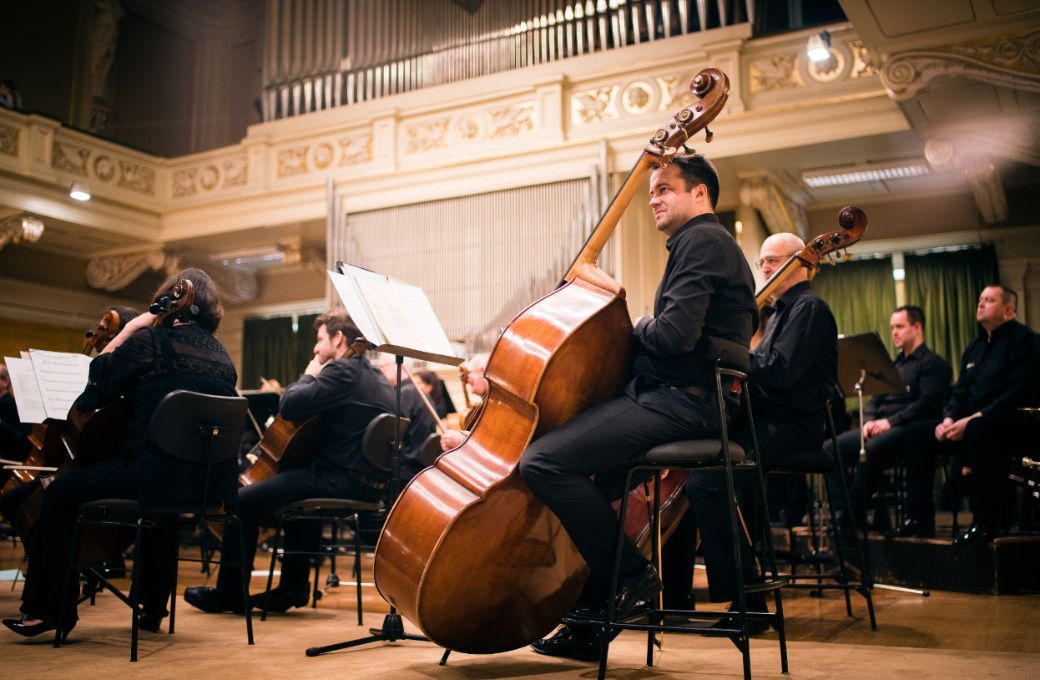Central European music is not always suitable for those of a genteel disposition. Dvořák’s inspiration for his tone poems stems from some of the most gruesome fairy tales to be found anywhere, and Janáček, who drew on Gogol’s novella Taras Bulba for his rhapsody of the same name, revelled in the bloodcurdling scenes of conflict between Ukrainian Cossacks and Poles. If you want macho culture, the death of two sons and their father, with looting, pillaging, raping and burning plus an archetypal religious war between Orthodox Christians and Catholics, then this Gogol-Janáček concoction is just the job for you. One might expect the Brno Philharmonic, which can trace its origins back to the 1870s, and playing here under its principal conductor Dennis Russell Davies, to do justice to a signature work by one of the sons of that Moravian capital.

There was certainly a characteristic tang to the orchestral sound, with sharply incisive rhythms suggestive of blades and bullets, a shrieking E flat clarinet in full cry symbolising Ostap’s agony in the second movement’s torture sequence, and the fruity vibrancy of the trumpets contrasted with the woody qualities of the lower strings at the start of the concluding movement. The tubular bells added a further touch of bright sonority, although the use of a thin-sounding harmonium, rather than the specified organ, did little to elevate the lament for loss of life. Russell Davies’ attention to the clarity of orchestral textures and the pinpointing of detail was evident here and later too.
Korngold was another of Brno’s famous sons. If you’ve got it, you might as well flaunt it: nobody outdoes this composer in terms of sugar rushes. His Violin Concerto in D major, the key of so many fiddle concertos, was given a very expansive treatment by Alexander Sitkovetsky, his opulent tone matching the full-blooded Romantic sensuousness of much of the writing. Although the Finale, with its virtuosic double-stopping and the taut springiness of the rhythms added to the scampering sense of fun, it was the central Romance which impressed me most of all. The solo line was always well integrated in the overall orchestral sound, never drawing unnecessary attention to itself, and in the many high-lying passages Sitkovetsky seemed to be floating into the stratosphere, his intensely singing quality recalling the composer’s assertion that this work was contemplated for a Caruso of the violin rather than for a Paganini.
Over the years I’ve heard many different takes on Dvořák’s most popular symphony, including a very existentialist reading full of foreboding by Sir Roger Norrington. This is probably the saddest view I’ve encountered, which is entirely valid given the fact that the Symphony no. 9 in E minor has at its core a feeling of homesickness, the eyes and ears of the composer looking back to his distant homeland From the New World. Though the occasional imprecisions in chording emphasised the homely rather than virtuosic qualities of the Brno Philharmonic, the solid musicianship, warmth and commitment from the players were never in doubt. Russell Davies took his time over the whole work, the articulation of rhythm and careful internal balancing being primary considerations. A mantle of sadness wrapped itself around the entire ensemble in the Largo, the “Hovis theme” especially poignant in its simplicity of utterance. Even in the Scherzo there was a sense of deep melancholy, the always audible presence of the triangle like tears cascading down cheeks. Not much electricity and certainly no triumphalism in the Finale either, more a feeling of inevitability, a streak of defiance in the face of adversity, Slavic soulfulness at its best.


